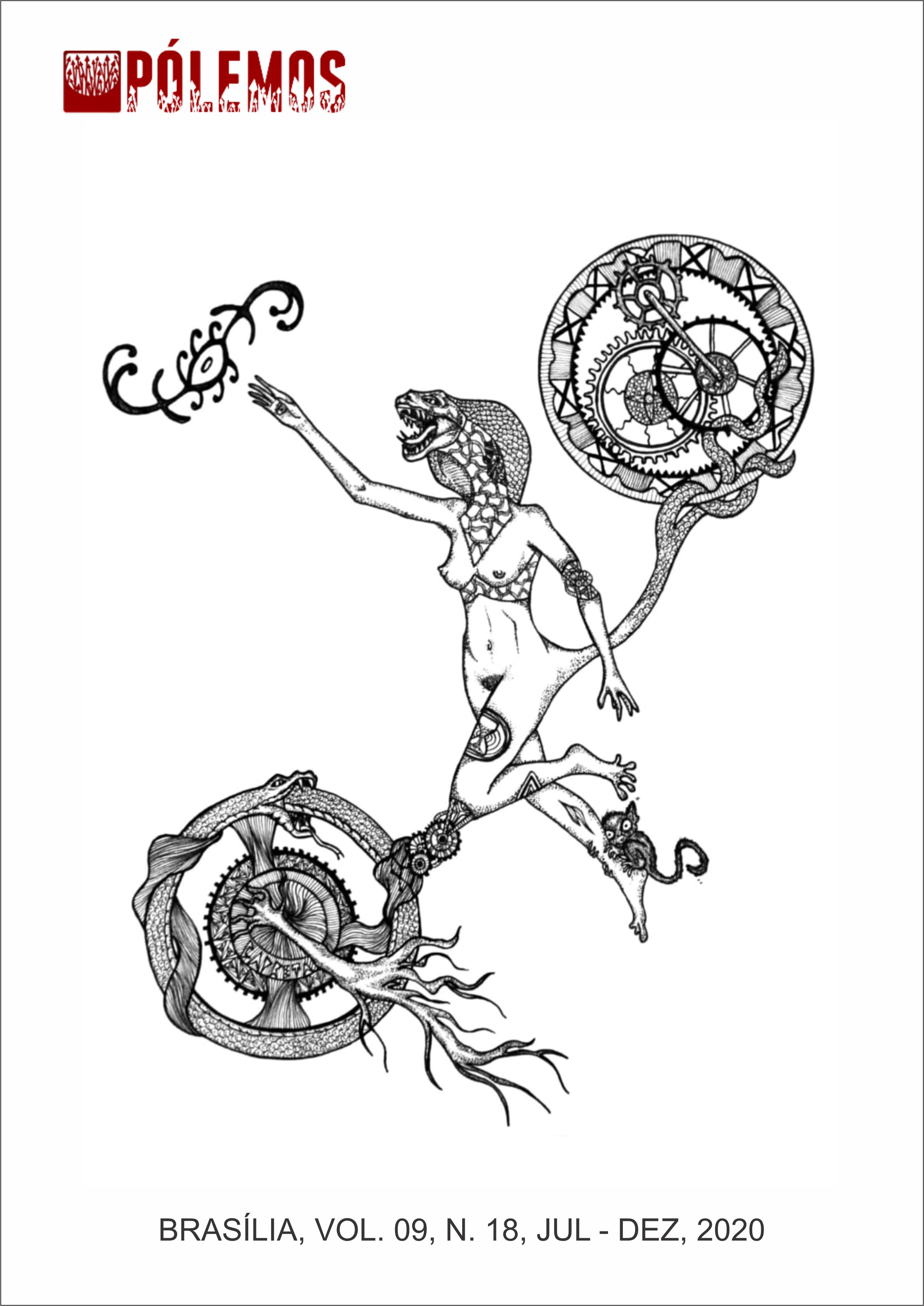THE KANTIAN CONSEQUENTIALISM OF DAVID CUMMISKEY IN THE FORMULA OF UNIVERSAL LAW
an analysis of the epistemological differences between consequentialist ethics and Kantian ethics
DOI:
https://doi.org/10.26512/pl.v9i18.30539Keywords:
Kant. Consequentialism. Ethics. Cummiskey.Abstract
This article aims to reproduce David Cummiskey’s first argument in Kantian Consequentialism, and then make a critical evaluation of it. This evaluation is made through two objections which resort to Kantian epistemology: the first objection demonstrates that the imperative provided by Cummiskey appeals to the empiric; the second explains the condition present in the presupposition of that imperative. This second objection bifurcates into two arguments: the first is against moral intuitions, and the second is a hypothetical counterexample. In this sense, examples and thought experiments are used throughout the text as complementary arguments. It follows that the attempt of a Kantian consequentialism is in fundamental opposition to its epistemology and, thus, must be rejected.
Downloads
References
ALMEIDA, Guido Antonio. Liberdade e moralidade segundo Kant. In: KLEIN, J. T. (org.) Comentários à s obras de Kant. Florianópolis: NEFIPO, 2012.
CUMMISKEY, David. Kantian Consequentialism. New York, NY: Oxford University Press, 1996.
DEAN, Richard. Cummiskey’s Kantian Consequentialism. Utilitas, [S. l.], v. 12, n. 1, p. 25-40, 2000. Disponível em: <https://doi.org/10.1017/S0953820800002594>.
FAGGION, Andrea Luisa Bucchile. O problema da causalidade à luz do naturalismo de Hume e do criticismo de Kant. In: KLEIN, J. T. (org.) Comentários à s obras de Kant. Florianópolis: NEFIPO, 2012.
FURLONG, Micab. The Trolley Problem and the Ends of Dignity. In: CRESCAT Scientia. Scientia Crescat Honors College Baylor University Waco, Texas. [S. l.], v. 13, n. 1, p. 16-32, 2015.
GUYER, Paul. Knowledge, Reason and Taste: Kant’s response to Hume. Princeton and Oxford: Princeton University Press, 2008.
______________. The Possibility of the Categorical Imperative. The Philosophical Review, [S. l.], v. 104, n. 3, p. 353-385, 2011.
HOURDEQUIN, Marion. Environmental Ethics: from Theory to Practice. New York, NY: Bloomsbury Academic, 2015.
HUME, David. Investigações sobre o entendimento humano e sobre os princípios da moral. Trad. José Oscar de Almeida Marques. São Paulo: Editora Unesp, 2004.
JAMIESON, Dale. Ética e meio ambiente: uma introdução. Trad. André Luiz de Alvarenga. São Paulo: Editora Senac São Paulo, 2010.
KANT, Immanuel. Fundamentação da metafísica dos costumes. Trad. Paulo Quintana, Introdução de Pedro Galvão. Lisboa: Edições 70, 2011.
___________________. Crítica da razão pura. 4 ed. Trad. e notas Fernando Costas Mattos. Petrópolis: Vozes, 2018.
KLEIN, Joel Thiago. Análise dos fundamentos da distinção kantiana entre noumenon e fenômeno. Argumentos ”“ revista de filosofia, Fortaleza, v. 2, n. 3, p. 25-35, 2010.
MILL, John Stuart. Utilitarismo. Trad. Pedro Galvão. Lisboa: Porto Editora, 2005.
MORGAN, Seiriol. Can There Be a Kantian Consequentialism? Ratio, [S. l.], v. 22, n. 1, p. 19-40, 2009. Disponível em: <https://doi.org/10.1111/j.1467-9329.2008.00416.x>.
SCHNEEWIND, Jerome B. Autonomia, obrigação e virtude: uma visão geral da filosofia moral de Kant. In: GUYER, P. (org.) Kant. Trad. Cassiano Terra Rodrigues. Aparecida: Ideias & Letras, 2009.
WOOD, Allen William. Kant’s Ethical Thought. New York, NY: Cambridge University Press, 1999.
Downloads
Published
How to Cite
Issue
Section
License
Copyright (c) 2020 PÓLEMOS ”“ Revista de Estudantes de Filosofia da Universidade de Brasília

This work is licensed under a Creative Commons Attribution-NonCommercial-NoDerivatives 4.0 International License.
Todos os trabalhos que forem aceitos para publicação, após o devido processo avaliativo, serão publicados sob uma licença Creative Commons, na modalidade Attribution-NonCommercial-NoDerivatives 4.0 International Public License (CC BY-NC-ND 4.0). Esta licença permite que qualquer pessoa copie e distribua a obra total e derivadas criadas a partir dela, desde que seja dado crédito (atribuição) ao autor / Ã autora / aos autores / às autoras.


